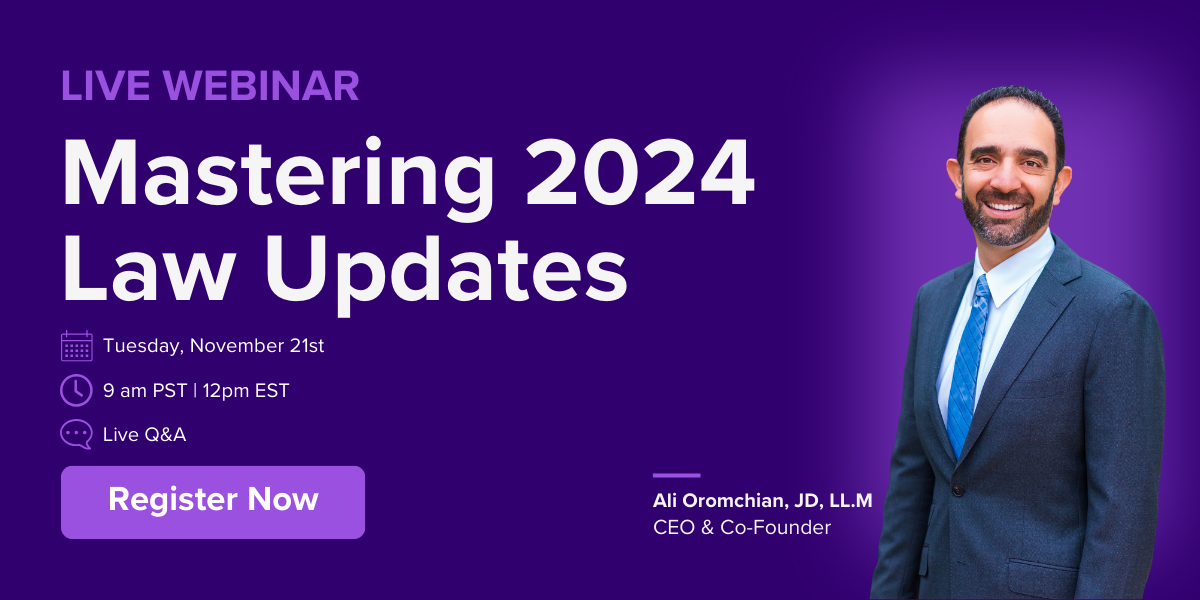What can your employees post about your dental, optometry, or veterinary practice on social media? The answer is complicated. Here’s what you need to know about off-the-clock social media activity.
In 2020, 3.6 billion people logged into a social media account at least once a month. That’s nearly half of the world’s population. In the United States, where nearly everyone has a smartphone or mobile device in hand, the percentage of social media users as compared to the adult population is almost equal.
Chances are this number includes most — if not all — of the employees in your dental, optometry, or veterinary practice, which can give you a competitive advantage. They may “like” or “share” content from your practice’s official page, boosting your reach. However, there is a dark side to social media. It’s one that can threaten your reputation and that of your practice. If your employees post certain types of content, even on their private pages while they are off the clock, you may be at risk.
What can your employees post about your practice and what is off-limits? The answer is more complicated than you think. The law protects certain types of comments, so a blanket ban on social media is out of the question.
Here’s what you need to know about protected social media conduct versus comments you can prohibit in your healthcare practice’s social media policy.
Why You Can’t Discipline Employees for Complaints About Working Conditions
It’s no fun to discover that your team members are unhappy about their working conditions, and it’s even worse when they choose to complain via social media rather than talking to you directly. However, remarks about pay, benefits, schedules, safety, and other elements of the workplace generally fall into the category of protected concerted activity.
This refers to the language in the National Labor Relations Act (NLRA) that prevents employers from interfering with employees who are working together to change or improve working conditions. Here’s the most important thing to remember: Protected concerted activity applies to your team, whether or not a union represents them. If you take action against an employee who engages in this sort of activity, you may find yourself in hot water with the National Labor Relations Board (NLRB).
Recommended Reading: Employee Wage Discussions: What You Can And Can’t Do
Social Media Conduct You Can – and Should – Address
The good news is that you don’t have to tolerate unprofessional behavior or misconduct that is unrelated to protected concerted activity. For example, you can take action if your dental hygienist slanders you or your practice on social media by falsely stating you don’t follow safety protocols.
You can also discipline employees who violate general standards of behavior that are outlined in your employee handbook. For example, if your associate veterinarian makes a remark about another employee that constitutes discrimination or harassment, you can — and should — address the issue.
The same goes for social media posts that are threatening or use menacing language directed toward another member of your team. In any of these situations, a failure to resolve the situation could put your practice at risk of litigation from the team member targeted by the social media posts.
The best way to prevent these sorts of issues is to create a social media policy and communicate it to your team. Employees are far less likely to engage in misconduct on social media when they understand exactly what is — and is not — acceptable.
Recommended Reading: Workplace Bullying: How to Identify and Manage
When Employees Post About Patients
Unprofessional remarks about co-workers is bad enough — discourteous comments about patients are absolutely unacceptable. Even something like your Front Office Manager posting that he hates when patients are impatient about wait times can damage your reputation.
This sort of thing gets more serious if confidential patient information is disclosed. For example, if your surgical assistant mentions a particularly unusual and interesting case online, it may violate the Health Insurance Portability and Accountability Act of 1996 (HIPAA). Patients’ health information cannot be shared without their explicit consent.
Protecting Your Practice’s Confidential Information and Trade Secrets
Sharing trade secrets or sensitive business information can cause financial damage to your practice. In many cases, it leads to a loss of competitive advantage. The problem is that employees don’t always understand what constitutes trade secrets and the damage they do when sharing them in a specialized industry.
The best way to avoid issues with exposing confidential information and trade secrets on social media is to develop and implement a clear, concise policy on this topic. You can include your nondisclosure policy in your employee handbook so you have a record that each team member reviewed and acknowledged.
A policy and documentation that employees received and reviewed protects your practice if you move forward with disciplinary action for related off-the-clock social media conduct. It is also helpful to review scenarios that may come up, so employees understand what information they must keep confidential and why.
The Impact of Social Media Posts That Encourage Discrimination and/or Harassment
No regulations protect hate speech, and employees are representatives of the workplace — even when they are off duty. Off-the-clock postings, comments, or statements that support or encourage discrimination or harassment due to characteristics like gender, race, and religion reflect poorly on your practice.
Disciplinary action up to and including termination of employment may be warranted due to the potential damage to your practice’s reputation and concern for the safety and comfort of your other team members. This area can be particularly difficult to navigate, as your employees are likely to have a variety of viewpoints. A clear policy that covers unacceptable behavior will ensure everyone understands your expectations.
Social Media Activity That Encourages, Threatens, or Condones Violence
When employees condone or encourage violence on social media, even when they are “just kidding,” you may have an obligation to address the situation. It could be something like your pharmacist saying she “wants to strangle her technician.” It could be more serious, such as a bookkeeper saying he wants to “burn the whole place down.”
Threats and violent language are likely to make other team members uncomfortable in your practice, which is your responsibility. In a worst-case scenario, you could be liable if the employee acts on their remarks and you didn’t take action to prevent the incident.
Recommended Reading: 7 of Today’s Common HR Challenges & How to Handle Them
How HR for Health Can Help
HR for Health offers personal support through the most complex HR issues. In addition, you can take advantage of fast, simple tools that automate the process of creating and distributing your policies in a comprehensive employee handbook. Learn more about the benefits of partnering with HR for Health by scheduling your consultation today.



